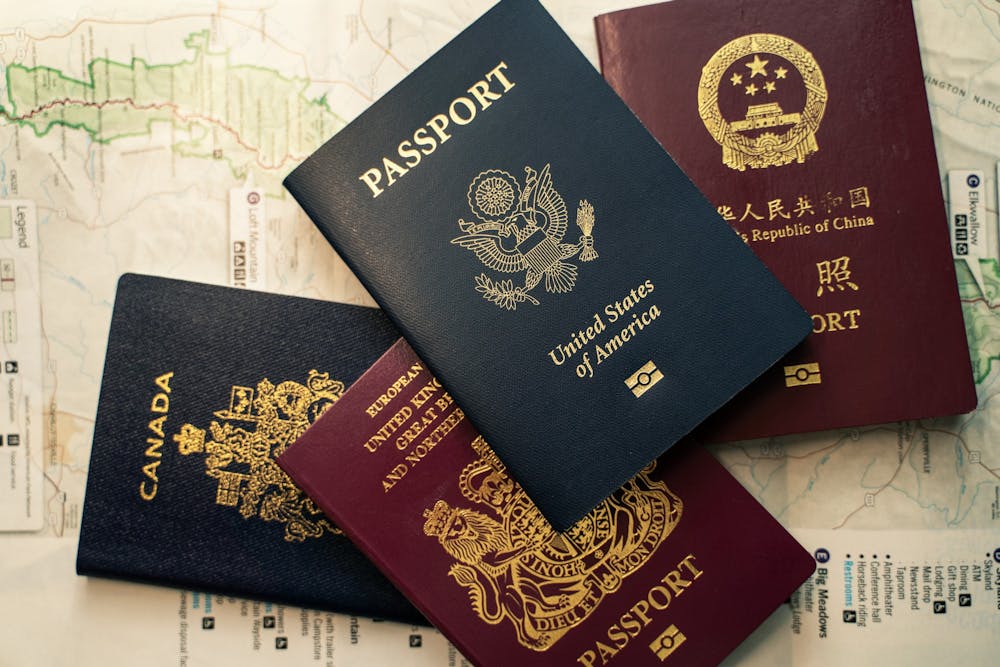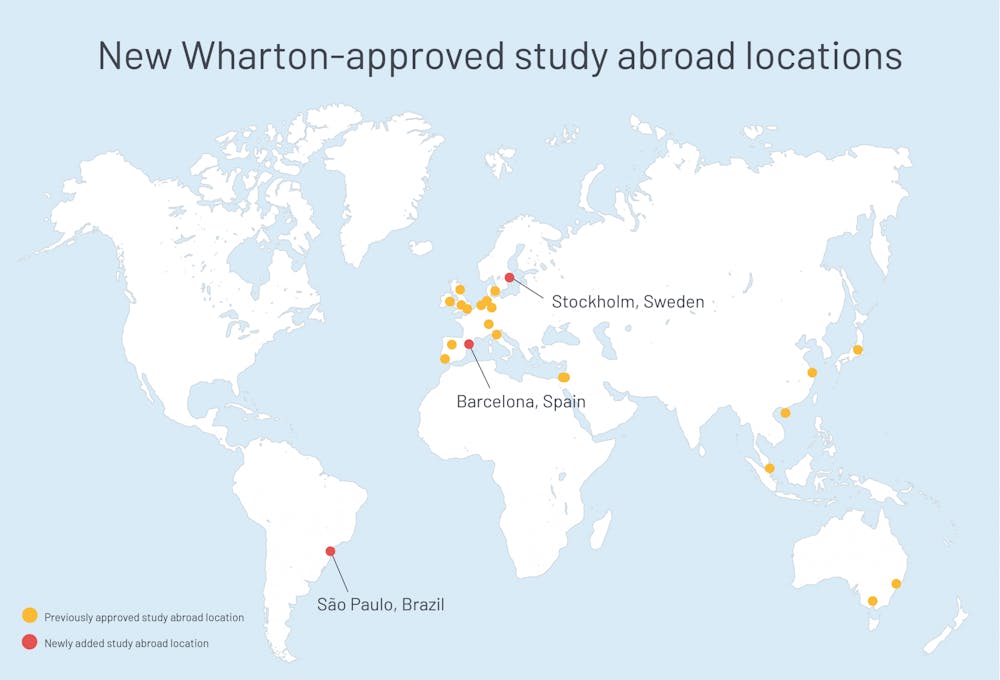
The Wharton School announced the creation of three new study abroad options for undergraduates in Stockholm, São Paulo, and Barcelona.
As early as fall 2020, students will be able to spend a semester abroad at the Stockholm School of Economics, Fundação Getúlio Vargas in São Paulo, and Pompeu Fabra University in Barcelona, according to an Oct. 29 email sent to undergraduates from Lee Kramer, director of student life in Wharton's undergraduate division.
This brings the total number of Wharton-approved study abroad options to 30 programs across Asia, Australia, Europe, and the Middle East. In these approved programs, students can take classes to satisfy their Business Breadth requirement for business courses outside their concentrations, as well as non-business and elective courses. They can also choose to study in College of Arts and Sciences-approved programs, where they can only fulfill non-business requirements. The new programs represent a large increase from the 21 Wharton-approved programs two years ago, Kramer said.
Penn Abroad Associate Director Kristyn Palmiotto said the Saão Paulo program is replacing a previous Wharton partnership in the city that ended in 2017. The Barcelona program was created because of increased student demand for study-abroad options in Spain, and in Barcelona specifically, Kramer added.
“Sometimes it’s region-based, sometimes a university has been on our radar, or we’ll meet at a conference,” Kramer said explaining how Wharton chooses which universities to approach.
Palmiotto said the process of establishing a new study abroad program, whether at Wharton or any Penn school, “doesn’t happen overnight and takes a few years.” She said Wharton and Penn Abroad work together to evaluate partner schools on factors such as accreditation, business curriculum rigor, ranking, student support services, and housing. Wharton’s Curriculum Committee gives final approval for all study abroad options.

“Having the infrastructure for exchange students is the most important thing,” said Wharton senior Samuel Roth, who was in the first cohort of Wharton students to study abroad at the London School of Economics last semester. Roth said he chose to study at LSE because of the school's reputation and because he wanted an English-language program.
“I enjoyed the classes, I enjoyed the system, I’m very glad I went to LSE,” Roth said.
Kramer said student views play an important role in determining new study abroad locations.
"We did a global opportunities survey two years ago that we sent out to all Wharton undergraduates, asking them where would they like to see new programs, what kind of programs, do they want English-language classes, do they want native-language classes,” he said.
In the survey, Kramer said, Paris was the most popular location. He added that a proposal for a new program there is currently in the works and may be approved within a year.
Terming the 30 options a “portfolio,” Palmiotto said Penn Abroad tries to ensure balance to cater to the linguistic and geographic needs of Wharton students. However, she admitted that there are gaps that need to be addressed.
“I know there’s not a ton of Wharton options in the Middle East,” Wharton sophomore Oliver Osei said. Osei plans on studying abroad in Australia or Singapore, which currently have four programs between them.
Kramer said expanding study abroad options in Latin America and Africa are priorities for Wharton. Currently, São Paulo is the only Wharton study abroad option in Latin America, while there are no programs in Africa.
The Daily Pennsylvanian is an independent, student-run newspaper. Please consider making a donation to support the coverage that shapes the University. Your generosity ensures a future of strong journalism at Penn.
Donate







